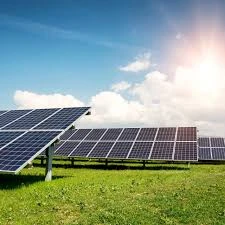Optimal Performance of a 6kWh Solar Energy System for Sustainable Living
Understanding a 6 kWh Solar System A Sustainable Energy Solution
As global awareness of climate change and the need for sustainable energy solutions rise, solar power has emerged as a viable option for homeowners and businesses. Among the various sizes of solar systems available, a 6 kWh solar system has become increasingly popular. This article delves into the benefits, components, and considerations of installing a 6 kWh solar system.
What is a 6 kWh Solar System?
A 6 kWh solar system refers to an array of solar panels capable of producing 6 kilowatt-hours (kWh) of electricity under ideal conditions, typically measured over a day. This production capacity suits the average energy consumption of a typical home, accommodating various appliances and electrical needs. However, the actual energy output can vary depending on factors such as geographic location, temperature, and time of year.
Components of a 6 kWh Solar System
1. Solar Panels The most visible component, solar panels convert sunlight into electricity using photovoltaic cells. A standard 6 kWh system typically consists of around 16 to 20 panels, depending on their individual wattage ratings. Each panel captures sunlight and generates direct current (DC) electricity.
2. Inverter The inverter is crucial for converting the DC electricity produced by the solar panels into alternating current (AC), which is the form of electricity used in homes and businesses. Modern inverters also come equipped with monitoring capabilities, allowing users to track their system's performance in real-time.
3. Mounting System Solar panels require a mounting system for installation on rooftops or ground setups. The mounting structure is designed to ensure optimal angle and stability for solar panels, maximizing sunlight exposure.
4. Battery Storage (optional) While not included in every solar system, battery storage can be incorporated to store excess energy generated during the day for use during the night or cloudy days. This addition enhances energy independence and efficiency.
5. Electrical Panel This serves as the central hub where solar energy integrates with the existing electrical system of the home. Any excess electricity generated can often be sent back to the grid, depending on local regulations and net metering options.
Benefits of a 6 kWh Solar System
1. Cost Savings Installing a solar system can significantly reduce electricity bills. Given the rising costs of energy, generating your own power helps mitigate these expenses.
6 kwh solar system

2. Environmentally Friendly Solar energy is a clean, renewable source of power. By harnessing solar energy, homeowners can significantly reduce their carbon footprint and contribute to a more sustainable future.
3. Increased Property Value Many prospective homebuyers look favorably upon properties with solar energy systems, often leading to increased market value. A 6 kWh solar system can be a compelling selling point.
4. Energy Independence With a solar energy system, users become less reliant on their local utility companies. This independence offers peace of mind, particularly during times of grid instability or rising energy prices.
5. Government Incentives Many regions offer tax credits, rebates, or other financial incentives to promote solar energy adoption. These incentives can substantially lower the initial investment cost of a solar system.
Considerations Before Installing a 6 kWh Solar System
1. Initial Investment While solar systems provide long-term savings, the upfront cost can still be significant. It's essential to evaluate local incentives and financing options to ease the burden.
2. Space Requirements A 6 kWh solar system requires a sufficient amount of roof or ground space. Evaluating the available area for installation is crucial before making a purchase decision.
3. Local Regulations and Rebate Programs Awareness of local regulations regarding solar installations is vital. Different areas have varying policies and incentives that can affect overall costs and return on investment.
4. Maintenance Although solar panels require minimal maintenance, it's still important to ensure they are kept clean and free of debris to maintain efficiency.
Conclusion
A 6 kWh solar system represents a smart investment for homeowners looking to explore renewable energy sources. With the potential for significant cost savings, environmental benefits, and increased property value, it’s no wonder that solar energy continues to gain popularity. By understanding the components, benefits, and considerations of a 6 kWh solar system, homeowners can make informed decisions and contribute to a sustainable future.
-
String Solar Inverter: The High-Efficiency Solution for Smart Solar EnergyNewsJul.14,2025
-
Revolutionizing Rooftop Energy with the Power of the Micro Solar InverterNewsJul.14,2025
-
Power Independence with Smart Off Grid Solar Inverter SolutionsNewsJul.14,2025
-
On Grid Solar Inverter: Powering the Future with Smart Grid IntegrationNewsJul.14,2025
-
Monocrystalline Solar Panels: High-Efficiency Power for the Future of Clean EnergyNewsJul.14,2025
-
Bifacial Solar Panel: A Smarter Investment for Next-Generation Energy SystemsNewsJul.14,2025







